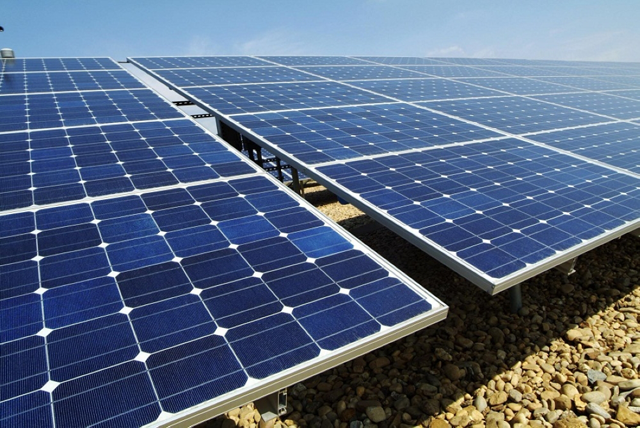You are here
Jordan achieves 99% electricity supply, spearheaded by strategic energy initiatives
By JT - Nov 11,2023 - Last updated at Nov 11,2023

Electricity supply across the Kingdom hit 99 per cent, due to the Ministry of Energy and Mineral Resources' strategic initiatives (Petra photo)
AMMAN — Electricity supply across the Kingdom hit 99 per cent, thanks to the Ministry of Energy and Mineral Resources' strategic initiatives which placed the Kingdom within globally recognised safe limits in addressing energy challenges.
The ministry's strategies included a comprehensive and integrated approach to achieving energy security. "This involved transitioning towards more sustainable energy sources, enhancing energy efficiency and increasing the contribution of local energy to the overall energy mix, notably green energy, besides the use of available renewable energy sources and bolstering the strategic fuel reserve."
Energy experts confirmed that Jordan has a strategic reserve of oil derivatives that is sufficient for a long period of time, highlighting that Jordan has maintained a 100 per cent supply of oil derivatives, the Jordan News Agency, Petra, reported on Saturday.
By establishing a resilient chain of supply and delivery services, the National Electric Power Company has also ensured the stability of the electricity system, the experts added.
According to the ministry's latest figures, the contribution of green hydrogen and renewable energy in electricity production reached 27 per cent. "The objective is to achieve a 50 per cent contribution by 2030."
There is no concern related to shortage of different types of energy, energy expert Hashem Aqel affirmed, highlighting that renewable energy accounts for 30 per cent of total electricity needs, with projects such as Al Attarat contributing 15 per cent.
The UAE-funded Sheikh Zayed bin Nahyan Solar Project in Quweira, with a grant of $150 million, has a capacity of 103 megawatts, he added.
Aqel said that with the inauguration of the Baynouna solar power plant, the largest of its kind in the Kingdom, Jordan has taken a "significant step towards eliminating the need for energy imports".
The Baynouna solar and photovoltaic power plant, located in the Muwaqqar reagion east of Amman, with a production capacity of 200 megawatts, generates clean energy at a low cost, while preserving the environment and community health by reducing carbon emissions, he said.
Emirati investments in Jordan's energy sector provide at least 300 megawatts at low cost, out of which 200 megawatts have been officially inaugurated at the Baynouna station, he said.
He added that Masdar, Abu Dhabi Future Energy Company, has signed a memorandum of understanding with the Ministry of Energy and Mineral Resources to develop renewable energy projects with a total production capacity of some 2 gigawatts.
"Together, these projects will provide 45-50 per cent of the country's electricity consumption, as Jordan's electrical capacity reaches 6500 megawatts, exceeding consumption needs."
Related Articles
AMMAN — Jordan and the UAE have significantly advanced their bilateral ties across various fields, particularly in climate and environmental
AMMAN — Prime Minister Bisher Khasawneh on Saturday attended the launch of the Baynouna solar and photovoltaic energy station, located near
AMMAN — Jordan is making remarkable strides in the world of renewable energy, securing the top spot in the percentage of renewable energy ca
















